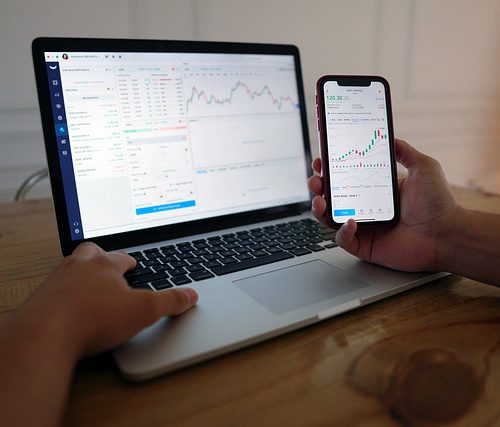Which indicators to use in Hong Kong for option analysis
As a trader, you’re always looking for new and innovative ways to analyse the markets and make informed trading decisions. If you’re currently trading options in Hong Kong, it’s essential to use the right tools to help you gain an edge in the market. In this article, we’ll discuss some of the best tools to use for options analysis.
When to use which tool?
Traders use two main types of analysis methods when they trade options: technical analysis and fundamental analysis.
Technical analysis studies past market data to identify trends and trading patterns. On the other hand, fundamental analysis looks at the underlying factors that can affect the price of an asset.
Both technical and fundamental analysis have their strengths and weaknesses. As a trader, you need to know when to use each type of tool to get the most out of your options trading strategy.
For instance, technical analysis is usually more helpful than fundamental analysis if you’re trying to predict short-term price movements. Technical indicators such as moving averages and support/resistance levels can give you a good idea of where the market is heading shortly.
On the other hand, fundamental analysis is usually more helpful if you’re looking at a longer-term investment horizon. It is because factors such as a company’s earnings and economic indicators can significantly impact prices over the long term.
Technical analysis indicators for options analysis
There are many different technical indicators that traders can use for options analysis. Some popular indicators include moving averages, Bollinger Bands, MACD, and RSI.
Moving averages are popular technical indicators that can be used to identify trends in the market. They are calculated by taking the average price of an asset over a certain period. The most common moving averages are the 50-day moving average (MA) and the 200-day MA.
Bollinger Bands is another popular technical indicator that traders use for options analysis. Bollinger Bands consists of two lines above and below an asset’s price. These lines show you the level of volatility in the market. If the markets are volatile, the Bollinger Bands will be broad. If the markets are not volatile, the Bollinger Bands will be close together.
MACD is a technical indicator that measures the difference between two moving averages. It is used to identify changes in the momentum of an asset. MACD is calculated by subtracting the 26-day MA from the 12-day MA.
RSI is a technical indicator that measures the level of overbought or oversold conditions in the market. It is calculated by taking the average of the last 14 days’ closing prices and then dividing it by the average of the last 14 days’ highs. If the RSI is above 70, the market is overbought, and if the RSI is below 30, the market is oversold.
Fundamental analysis indicators for options analysis
In addition to technical indicators, traders can use fundamental analysis to analyse options, as it looks at the underlying factors that can affect the price of an asset. The most important fundamental indicators include a company’s earnings, economic indicators, and political events.
A company’s earnings are one of options traders’ most critical fundamental indicators, and it is because a company’s earnings can significantly impact its stock price. If a company beats earnings expectations, its stock price will usually go up; if it misses earnings expectations, its stock price will go down.
Economic indicators are another important fundamental indicator for traders. These indicators give you a good idea of the overall health of an economy. If the economy is doing well, it is usually suitable for the stock market. On the other hand, if the economy is not doing well, it is usually bad for the stock market.
Political events can have a significant impact on the markets. For instance, if there is a prominent political event such as a presidential election, it can cause volatility in the markets. Traders need to be aware of these events and how they might affect the prices of assets.
These are just some fundamental indicators traders can use for options analysis. As with technical indicators, it is essential to experiment with different indicators to find the ones that work best for your trading strategy.
The bottom line
Traders can use different methods for options analysis, including technical and fundamental analysis. It helps if you experiment with different indicators within these analysis methods to find the best work for your trading strategy as a trader. Follow the link to learn more about trading options.



